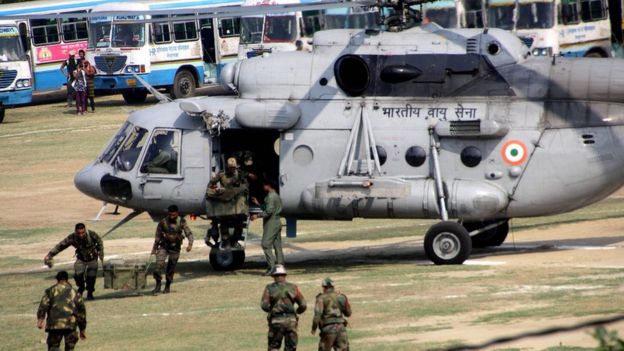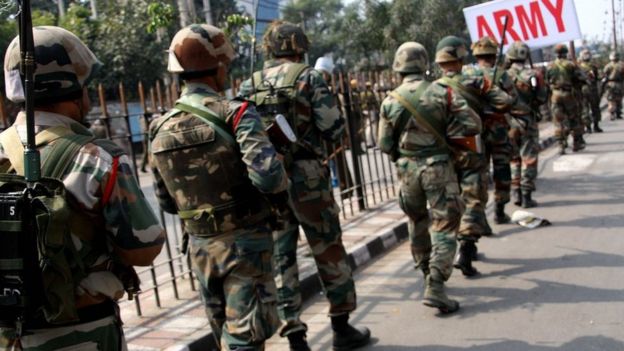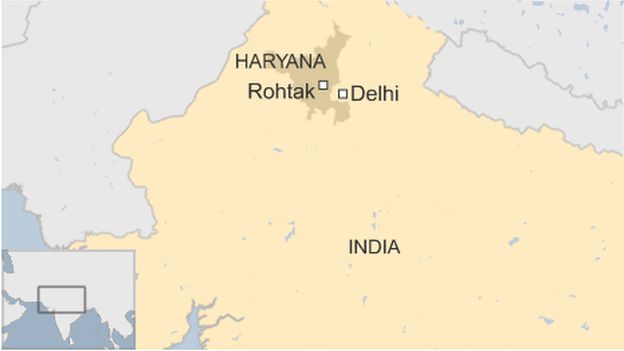Water crisis fears in Delhi over Jat caste unrest
BBC
The Indian capital Delhi is facing a severe water crisis due to violent protests relating to caste rights in the neighbouring state of Haryana.
Delhi government officials said the city only had water supplies until Sunday morning and announced closure of all schools on Monday.
Protesters from the Jat community damaged equipment in the Munak canal, a major source of water to the city.
At least nine people were killed as violence continued on Saturday.
The demonstrators are unhappy about India’s caste quota system.
They say it puts them at a disadvantage in government jobs and at state-run educational institutes.
The Jats are currently listed as upper caste but the demonstrators want job quotas similar to those granted to lower castes.
Protesters again went on the rampage on Saturday despite a curfew and the deployment of the army which is reported to have opened fire on them in the Rohtak and Jhajjar districts.
 Image copyrightManoj Dhaka
Image copyrightManoj Dhaka Image copyrightManoj Dhaka
Image copyrightManoj Dhaka
The violence has forced the closure of several key roads and national highways, and paralysed the railway system in north India.
The local Delhi government has approached the supreme court seeking its intervention in the water crisis.
India’s Home minister, Rajnath Singh, has also promised that the government will take “urgent measures”.
Haryana Chief Minister Manohar Lal Khattar has already said that the government is ready to agree to the demands of the protesters “within the ambit of the constitution”.
Opposition parties have called for Mr Khattar’s government to be sacked by the central government and for presidential rule to be imposed on the state.
On Friday protesters in Rohtak hurled rocks at security forces while blocking traffic, attacking vehicles and attempting to set the finance minister’s home on fire.
